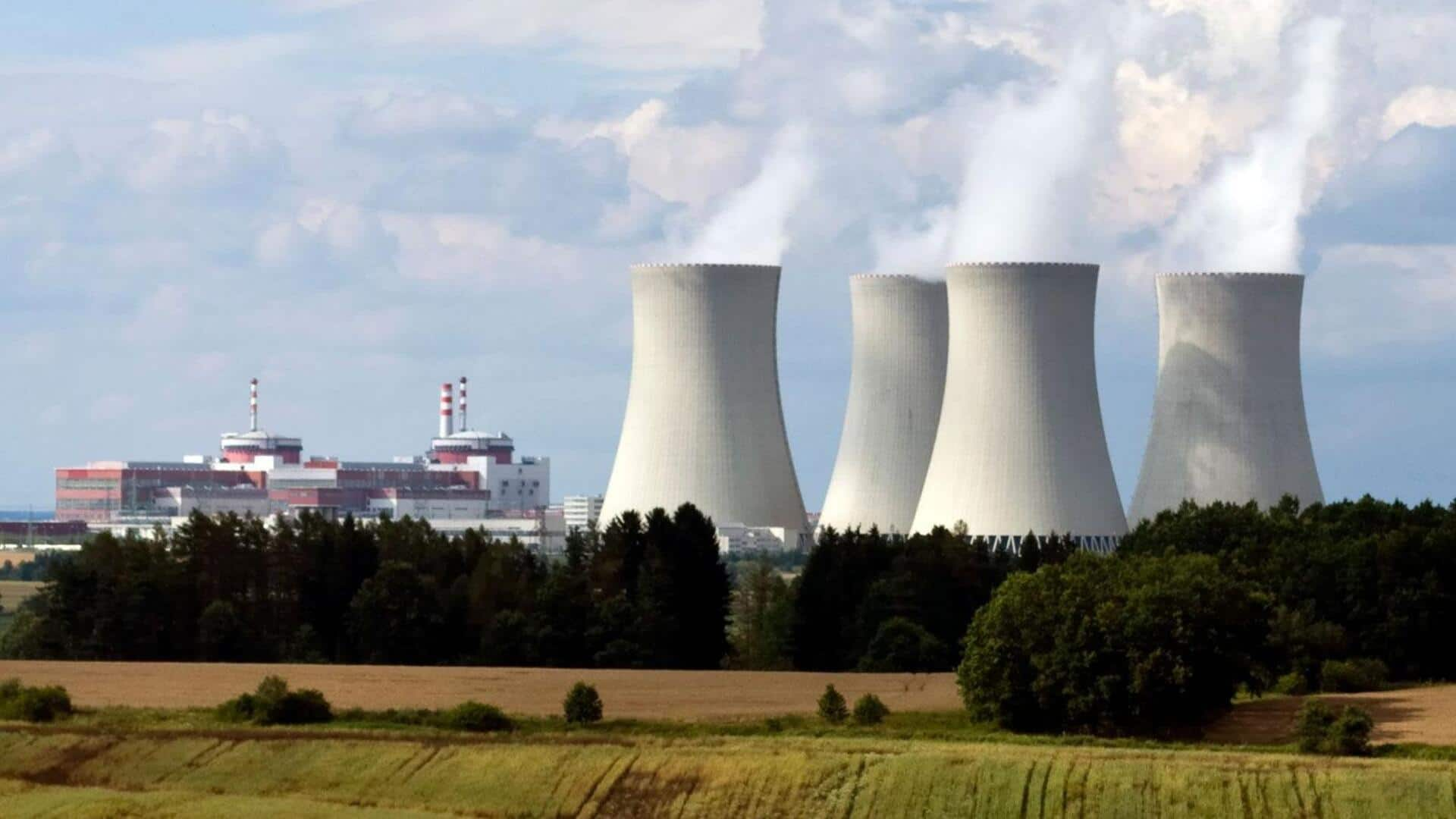
Breakthrough research could improve safety of future nuclear reactors
What's the story
Scientists from the Argonne National Laboratory, a division of the US Department of Energy, have made a significant breakthrough in understanding how liquid plutonium oxide (PuO2) behaves at extremely high temperatures. The team successfully studied the material at temperatures reaching 3,000 Kelvin (around 2,726.85 degrees Celsius). This research could potentially enhance the safety and efficiency of future nuclear reactors. It was necessitated by the critical need to understand how nuclear fuel materials behave under extreme conditions.
Innovative approach
Unique method to study plutonium oxide
The Argonne team employed an innovative method to study PuO2, due to its complex nature and associated safety concerns. They suspended small samples of PuO2 in a gas stream and heated them with a laser. "Samples of PuO2 measuring about 2mm in diameter were levitated on a gas stream and then heated by a carbon dioxide laser beam until they melted," the researchers explained.
Significant findings
Structure of liquid PuO2
The research yielded significant results as the team observed changes in the melt's volatility and structure across different atmospheric conditions. "We solved the structure of liquid plutonium oxide and found that some covalent bonding was indeed present," stated Argonne Senior Physicist Chris Benmore. He further revealed that "the liquid structure was similar to cerium oxide, which can be used as a non-radioactive substitute."
Technological integration
Supercomputers and AI in nuclear research
Besides experimental work, the Argonne team used advanced supercomputers to develop machine learning models. These models simulated electron behavior in the system, providing insights into bonding mechanisms and safety issues related to mixed oxide fuels in future nuclear reactors. Mark Williamson, director of Argonne's Chemical and Fuel Cycle Technologies division, emphasized, "The data from the combined set of experiments not only provides information of technological importance but also provides insights into the fundamental behavior of actinide oxides at extreme temperatures."
Expertise advantage
Argonne's unique capabilities
The Argonne National Laboratory's specialized facilities and extensive expertise played a crucial role in this complex experiment. "Argonne is probably the only place in the world capable of performing this very difficult type of experiment," Benmore highlighted. The latest research represents a major step toward creating safer and more efficient nuclear energy systems, marking a significant milestone in the field of nuclear reactor technology.